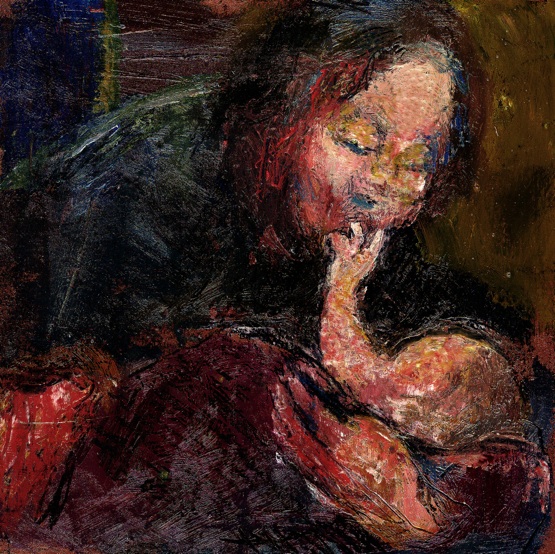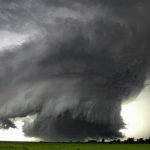We run our website the way we wished the whole internet worked: we provide high quality original content with no ads. We are funded solely by your direct support. Please consider supporting this project.

The Incarnation: More Than a Rescue Mission
A mistake people often make concerning the Incarnation is that they fail to distinguish the eternal plan of God to unite himself with humanity in Christ, on the one hand, from the atoning significance this plan acquired after the fall, on the other. Some therefore think of the Incarnation as a sort of “Plan B” that God had to activate to rescue humanity. It seems to me this “contingency plan” view of the Incarnation compromises the grandeur and beauty of God’s dream to live in unity with humanity (see post), since it makes it look like God would have preferred to remain in heaven and not united himself to us. Within this point of view, one might conclude that our sin forced God’s hand by requiring him to become a human to rescue us.
Others have rightly understood that the divine plan to incorporate humans “in Christ” by means of the Incarnation is spoken of in the New Testament not as a “Plan B,” but as God’s plan from the start. But, they fail to distinguish between the Incarnation itself and the atoning significance the Incarnation takes on in light of our rebellion, and therefore they come to the frightful conclusion that sin itself must have been part of God’s “plan A” all along! This leads to the difficult problems associated with the blueprint worldview where God predestines all things, even sin and rebellion.
The view of the Incarnation I’m advocating steers a middle course between these two interpretations and avoids both of their problems. It’s true that Jesus came to earth to overcome evil with sacrificial love. He came to vanquish the principalities and powers, pay for the consequences of our sin, restore us back to God, etc. And to accomplish this, Jesus had to suffer and die. But none of this suffering had to happen, for sin never has to happen. Sin, by definition, is what’s not supposed to happen. The suffering dimension of the Incarnation was rendered necessary only because of our rebellion.
But this doesn’t imply that the Incarnation itself was only devised as a rescue operation after our rebellion. And it certainly doesn’t imply that our rebellion was part of God’s eternal plan. Rather, as a number of theologians have argued throughout history, God would have become a human being and incorporated us “into Christ” even if there had been no rebellion.
As I see it, God’s original plan was to mature the relationship between humans and himself over time to prepare us for his union with us. Just as a marriage between two people is preceded by a period of courtship, so God courted humans in preparation for his marriage to us. The Incarnation is, as it were, God’s marital union with us, which is why we are called Christ’s bride.
The dream of a beautiful marriage between God and humanity was the reason God created the world. Therefore God was not going to let our rebellion and the rebellion of certain angels get in his way. Rather, with a manifold wisdom that is beyond human comprehension, God devised a way to “kill two birds with one stone.” The union of God and humanity in Christ would, first of all, consummate God’s marriage with us. And secondly, it would defeat the devil, end the reign of the Powers on the earth, free humanity from condemnation, and restore us back to our rightful place as co-rulers with Christ upon the earth.
“Mary and Her Baby” painting by Daniel Bonnell
Category: General
Tags: Atonement, Blueprint Worldview, Incarnation, Jesus, Open Theism, Redemption, Salvation
Topics: Atonement and The Cross
Related Reading

An Omni-Resourceful God
It is quite common for us to talk about the attributes of God as omnipotent (all-powerful), omniscient (all-knowing) and omni-present (present everywhere), but what about God’s unlimited resourcefulness? Consider the story of Moses’ commission in Exodus 3 and 4. Here the Lord instructs Moses to tell the elders of Israel that the Lord has heard…

Why Does God’s Activity Seem So Arbitrary?
Why? It’s the question that never goes away. Why is one infant born sickly and deformed when at the same time another is born perfectly healthy? Why does tragedy repeatedly strike one family while another seems to enjoy uninterrupted peace? On and on we could go with examples. It all seems so arbitrary and unfair.…

The Cruciform Center Part 2: How John’s Gospel Reveals a Cruciform God
In the previous post, we looked at how the Synoptics illustrate the centrality of the cross. While the Gospel of John varies in its structure and language from the Synoptics, the cross remains at the center. This centrality is expressed in a number of different ways. 1. The role that Jesus’ death plays in glorifying…

What is the significance of Revelation 22:18?
“If anyone takes away from the words of the book of this prophecy, God will take away that person’s share in the tree of life and in the holy city…” For God to “take away” something he must have given it first. But, as with the previous verse, if God foreknew from whom he would…

A Video Introduction to Open Theism
Here’s a video clip on Open Theism from Greg’s sessions with Travis Reed with The Work of the People. What is Open Theism? Open Theists affirm that God knows all of reality perfectly, so Open Theism really is about the nature and content of the future. Does the future contain real possibilities? We have to wrestle with…

Don’t all religions believe in the same God?
http://youtu.be/BKmSr6lKWsk Bruxy Cavey takes a swing at this question and scores a home run.
